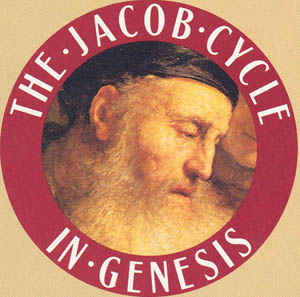’97 Dig Opportunities
000
1988 Excavation Opportunities
1990 Excavation Opportunities
1991 Excavation Opportunities
1993 Excavation Opportunities
1994 Excavation Opportunities
1996 Excavation Opportunities
2006 Digs
A Guide to ’98 Digs: The Volunteer's View
Akeldama
Alter vs. Kugel
An Odyssey Debate
Ancient Musical Instruments
Assessing the Jehoash Inscription
BAR's 20th Anniversary
BAR's Tenth Anniversary Section
BAR’s 20th Anniversary
Battle Over Bones
Battle Over Jericho Heats Up
Battling Over the Jesus Seminar
Caesarea: Herod and Beyond
David’s Jerusalem: Fiction or Reality?
Dead Sea Scrolls
Dead Sea Scrolls Research Council: Fragments
Dead Sea Scrolls Update
Defusing Pseudo-Scholarship
Different Interpretations
Dig 2004
Dig In: A Guide to ’99 Digs
Digs 2000
Digs 2001
Digs 2002
Digs 2003
Digs 2005
Digs 2007
Digs 2010
Digs 2015
Digs and Digging 1980
East Meets West: The Uncanny Parallels in the Lives of Buddha and Jesus
Ecclesiastes
Elba Update
Elgin Marbles Debate
Excavation Opportunities 1985
Excavation Opportunities 1986
Excavation Opportunities 1989
Excavation Opportunities 1995
Forgotten Kingdom
Frank Moore Cross—An Interview
Has Richard Friedman Really Discovered a Long-Hidden Book in the Bible?
In Private Hands
Israel Comes to Canaan
Israel Underground
Issue 200
James
Jerusalem 3
Jerusalem Explores and Preserves Its Past
Jerusalem Update
Jerusalem’s Underground Water Systems
Jonah and the Whale
Megiddo Stables or Storehouses?
Michelangelo’s Sistine Ceiling
New Directions In Dead Sea Scroll Research
One if by Sea…Two if by Land: How Did the Philistines Get to Canaan?
Ossuary Update
Pilate in the Dock
Point/Counterpoint: Pros and Cons of the Contemporary English Version
Portraits In Heroism
Questioning Masada
Qumran
Redating the Exodus—The Debate Goes On
Remembering Ugarit
Rewriting Jerusalem History
Riches at Ein Yael
Roman Jerusalem
Scholars Disagree: Can You Name the Panel with the Israelites?
Sea Peoples Saga
Should the Bible Be Taught in Public Schools?
Special Bible Section
Spotlight on Sepphoris
Sumer
Supporting Roles
Temple Mount
Temple Scroll Revisited
The Age of BAR
The Amman Citadel: An Archaeological Biography
The Babylonian Gap Revisited
The Bible Code: Cracked and Crumbling
the Brother of Jesus
The Dead Sea Scrolls
The God-Fearers: Did They Exist?
The Jacob Cycle in Genesis
The Minoans of Crete: Europe’s Oldest Civilization
The Most Original Bible Text: How to Get There
The Pools of Sepphoris: Ritual Baths or Bathtubs?
The Search for History in the Bible
What Was Qumran?
Where Was Jesus Born?
Where Was the Temple?
Who Invented the Alphabet
Introduction


The Jacob cycle, heart of the patriarchal narratives, has moved, intrigued and inspired generations throughout the millennia. The characters are as real as we ourselves—and as elusive. Seen through different prisms, they continually reveal new facets. In this issue we examine these stories and the people in them from different perspectives: Jacob, as the deceiver —and as an “innocent man”; Joseph, the peacemaker who renounces vindictive recompense—and Joseph as a “brilliant failure.” In a classic recreation, Thomas Mann shows us how fiction too can deepen our understanding of the biblical characters. Who but a master—like Mann—would dare to recreate so delicate an episode as Jacob’s wedding night. And how do matters look from the vantage of action-oriented women living in a patriarchal society—are they, in the end, merely vessels for the creation of sons? And, finally, we include a poetic evocation of the unloved, unbeautiful Leah living in the shadow of her younger sister Rachel.
